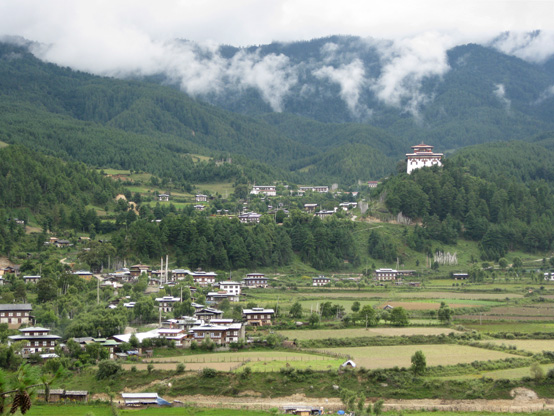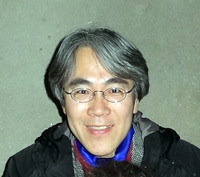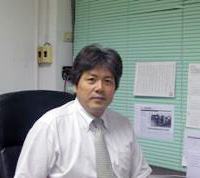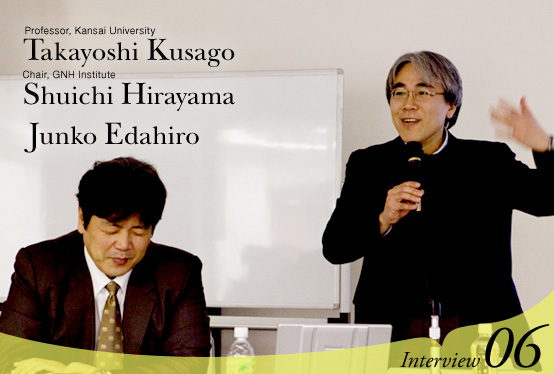- Edahiro :
- As another comment, I would like to end with a question for both of you.
- Even though the actual scale of the economy may not increase, things can still be constantly created within it. This is the “steady-state economy,” something that Herman Daly, a former senior economist of the World Bank, has talked about. If we think about sustainability, the steady-state economy is the only answer. So how can we help society -- especially the people who make policy -- understand and accept his concept? That’s my next topic.
- The moment I use the term “steady-state economy,” I always receive lots of comments. People say, “We cannot be without growth,” “We must not stop,” and “It is unacceptable for humanity to have no change.” But in fact this is not about not changing and not growing. The concept does include some growth and change, but steady-state means that the overall quantity does not change. So one point is that we must challenge our thinking about the myth of growth, which says: “Humanity must continue to grow.”
- And so, my question to both of you is about the sense of time when measuring the level of happiness. What I mean is, when you talk about the sense of happiness in terms of the emotional meaning of happiness, it is very transient. People feel very happy after they happen to eat something delicious. They feel happy when something very good occurs, and before that, if something unwanted occurs the level of happiness is low. There is this kind of transience, and of course it is an emotional feeling, but even if we were to measure it, it wouldn't help with policy, right?
- So because of that, if we’re going to use something for policy, it is important to measure the level of happiness or the sense of happiness, based on a certain sense of time. Now, what I’m worried about in Japan’s development of an indicator is that Japan might go with something that’s more transient -- the kind of thing that could be manipulated -- in the sense that, “If we do this, citizens will be happy, and the happiness indicator will rise.” If we go with this kind of definition, when we talk about the level of happiness or sense of happiness, I think it is extremely important to think about how to deal with the sense of time.
- In that sense, I would especially like to ask you, Mr. Kusago and Mr. Hirayama, about Bhutan's GNH. How are they trying to measure the level of happiness of the people on the time dimension?
- And one more question, related to the time dimension, is what do you think about the pace of society?
- For example, just like now, if living in a way that is always rushed in the midst of a society that seems to keep accelerating, even if there is something that kind of makes you feel happy, you still get the sense that that's not happiness. This, I think, is connected to the level of receptivity of and sensitivity to happiness.
- This is my hypothesis, but perhaps in Bhutan people hold the reins of the pace of society better and try to control that pace. At least that may have been true in the past. Developing countries generally try to catch up to developed countries and accept more and more assistance. But I've heard that, in Bhutan, they thought about when to introduce television and when to connect to the Internet, and as a country they are thinking about the pace of development and opening up to the world. I've heard that they are holding onto the reins controlling the pace of change.
- The sense of time and pace of society are very broad topics, but I would really like to hear your thoughts on them.

- Kusago :
- Thank you. With regard to the time dimension, in the case of Bhutan, they reportedly check the GNH indicator every two years, and I think their stance is that they want to follow the trends themselves on their own chronological scale. Apparently, they decided to look at how living conditions are now, and then use the same kind of indicator based on that -- for example, to see if the GNH indicator targets are achieved -- to check every two years. Because of that, they can extrapolate from the current status on the time dimension, and I think that they are using it as one type of lens to look at society.
- As for the pace of society, it's exactly as you said. I am often told that I seem to be very busy and hard to reach, but I control things in my own way. And I sleep well. I've decided that I must absolutely get my sleep. And I schedule the time that I will absolutely spend with my family. To protect the pace of society, and to protect our own pace, perhaps we need to exercise our own will and effort. If we do so, we can be quite happy.
- Hirayama :
- Right. The pace of society in Bhutan, and the pace of development? To some extent the Bhutanese are suppressing them. The people might be frustrated from the slow pace of change toward a modern society, but it could be a government strategy to adapt slowly as they take their time to carefully review development plans. In some cases they may get behind the times. Sometimes they may look at another country that had bad results. They can observe the approaches that didn't work. That's the stance they are taking about this.
- Regarding forests, without the government being involved, they say that “the King says don’t cut them,” so the trees are left to stand. And in the areas of CO2 emissions trading and biodiversity protection and so on, they have suddenly become very progressive.
- Their sense of time is based on the concept of cycles. Bhutan's sense of time is cyclical. This is natural because it is an agrarian society. Crops are harvested on a seasonal cycle, and there is the regular 24-hour cycle. And if you are in Bhutan for a day, in the morning you feel the wind blow down from the mountain, in the afternoon it gradually changes direction to blow up from the south. This is a special mountain climate cycle.
- These are cyclical phenomena that people constantly experience. They also believe in the cycle of reincarnation. I believe that a society like this, with this sense of time, is working with a spiral circulation of cycles in a certain direction.
- As for the pace of society, here is my personal observation. After all, if you decide what you find important, and on what dimension you will spend your time, I think that to some extent you can create your own pace.
- If we apply this to our own society, if we were to decide on a certain dimension that emphasizes those kinds of paces of humans and nature, there would then arise a sense that we should adjust ourselves to those paces. I got the sense that if a lot of people looked at the current tone of society that says, “More, more,” “I want this, I want that,” “That’s out of style,” and responded with, “No, that’s not right,” then gradually things will change.
- Edahiro :
- Thank you.
- Today Mr. Hirayama came from Thailand and Mr. Kusago came from Kansai. I would like to end with a round of warm applause to show our appreciation. Thank you very much.
Takayoshi Kusago
Professor, Faculty of Sociology, Kansai University

A social scientist who takes action. After graduating from the Faculty of Economics, The University of Tokyo, he obtained his Master's degree at Stanford University, and Ph.D. in Development Studies at the University of Wisconsin-Madison. Following posts that included the World Bank, Meiji Gakuin University, Hokkaido University, United Nations Development Programme (UNDP), and Osaka University, he is currently a professor at Social System Design, Faculty of Sociology, Kansai University. From the perspective of human development and capabilities, he has tackled questions about how people can actively create a society that achieves a higher level of well-being for the people, and has reported his research findings at international conferences and in publication, both in Japan and overseas. He has travelled to communities in Bhutan, Nepal, Minamata, Niigata and Hyogo, for research activities and to provide practical assistance, listening directly to capture what statistical data tend to miss, and working hard to grasp the perspectives of local people.
Shuichi Hirayama
Chair, Institute of Gross National Happiness

International development consultant (governance field) and architect (first-class architect license holder). After completing the Master's program in International Relations at the Graduate School of Asia-Pacific Studies of Waseda University, he worked as a senior research fellow in the research and planning department of CSJ Corporation. While providing official development assistance services in Bhutan, Mongolia, and Thailand, he became aware of the potential to bring experience and thinking from developing countries back to be applied in Japan. He has written prolifically, and some of his publications include "Sixty Chapters to Understand Modern Bhutan" (publisher Akashi Shoten, in Japanese); "Indicators to Create a Warm Local Society: Arakawa Ward Citizens' Gross Happiness Index" (publisher Yachiyo Shuppan, co-authored, in Japanese); and "Dawa pilgrimage: The Tale of a Stray Dog in Bhutan" (publisher Dandansha, in Japanese). He is chair of the Institute of Gross National Happiness, and vice-chair of the Japan Society for GNH Studies, and is also known as the site engineer of design and construction of the Kunrey (Main Prayer Hall) of the monastery in Punakha, Dzong, venue for the royal marriage of the fifth king of Bhutan.







